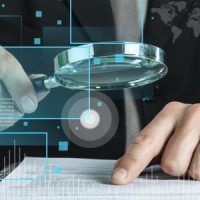Legal Issues In Equipment Leasing

A lot of small businesses have expensive needs when it comes to equipment. Your business may not be able to immediately afford the equipment that you need. When that happens, equipment leasing may be the answer. Leasing can be a great option so long as you understand the legal issues that surround the lease.
What is Equipment Leasing?
Leasing equipment is just like leasing any other kind of equipment. The equipment belongs to the lessee, and you, the lessor, pay a monthly fee to use the equipment. This is an especially attractive option for heavy machinery, which may cost into the millions.
Other benefits include the ability to easily upgrade the equipment when you’re ready, and some tax benefits. Additionally, if your lease is up and you no longer want the equipment, you just give it back and move on.
Considerations in Lease Agreements
When you lease equipment, you will have to sign lease agreements. Here are some things to consider in your lease agreements.
What’s the equipment worth? – This makes a difference for your insurance, which will be higher for higher-valued equipment. Additionally, if you are paying depreciation costs, and for tax reasons, the value of the equipment can make a difference.
Cancellation – How easy is it to get out of the lease? In some industries, the equipment you are leasing may get outdated before the term of the lease expires. Do you have a way to upgrade with no penalty?
Taxes – If the equipment increases a party’s tax burden, who pays those increases?
Renewal – You don’t want your equipment being taken back, when your lease is up, if you still need that equipment. Do you have the right to renew? How could that right be lost or terminated?
Events – How do major events, such as the sale of the business, changing of directors, or even your death if you are the signor, affect the lease? Many leases can be declared in immediate default and have severe penalties if any of these happen.
What Kind of Lease?
The answers to many of these questions will depend on what kind of lease you have.
Some leases are for large equipment that you anticipate having for years—and maybe, in the future, owning outright. Here, you will bear most of the costs of repair, maintenance, taxes, or insurances. The good thing is that your lease payments may be going towards your purchase of the equipment, at a set point in the lease.
Shorter term leases generally leave the business owner with fewer responsibilities. The lessor will take care of repair and maintenance and taxes and even some insurance. Sometimes, these leases can be terminated more easily. Businesses can often terminate these kinds of leases, although there may be a termination penalty. There is usually no path to owning the equipment, in shorter term leases.
Getting Credit
Your business may need credit to get an equipment lease—although less credit than you would need to finance a purchase of the machinery outright. Many lessors have subsidiaries and related companies that will take care of the lease financing.
Call the West Palm Beach business litigation attorneys at Pike & Lustig today to help your business with its business contracts and agreements.
Source:
sec.gov/Archives/edgar/data/935066/000119312504050784/dex1056.htm
